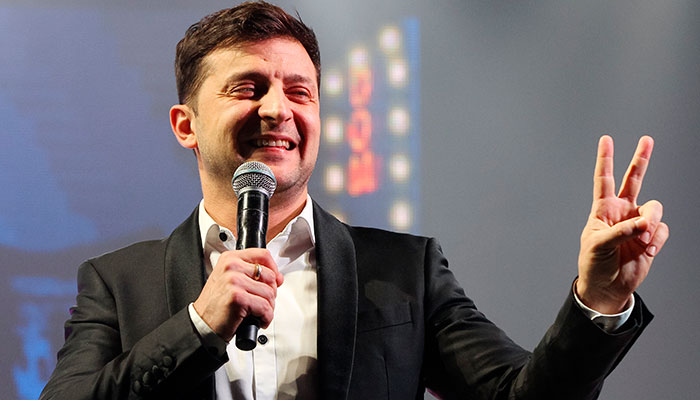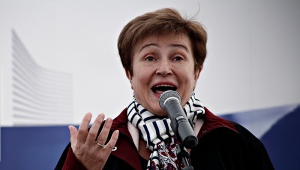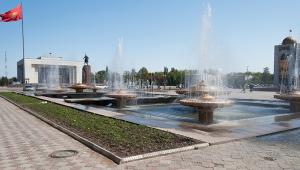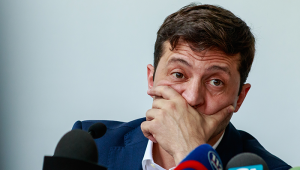volodymyr-zelenskiy-shutterstock_1367734469.jpg

Volodymyr Zelenskyy, president of Ukraine
The ‘standby arrangement’, a programme the IMF uses to help countries experiencing economic crises, involves an immediate transfer of $2.1bn and is aimed at protecting the progress Ukraine has already made in making reforms agreed in a previous deal with the Fund.
“I think this is our great victory,” president Volodymyr Zelenskyy told reporters. “The IMF fully approved our programme.”
Zelenskyy said the IMF had initially planned to give Ukraine just $1.9bn in the initial tranche, but during a conversation with Fund managing director Kristalina Georgieva he convinced her to increase the allocation.
“I explained that the situation is difficult and we do not have enough money,” he said.
“And we have to pay dreadful interest rates because of the big loans of the past. That is why I urged and insisted that we should reach an understanding and increase the first tranche.”
The arrangement comes with four priorities for the Ukrainian government: mitigating the economic impact of the crisis, including by supporting households and businesses; ensuring continued central bank independence; protecting financial stability while recovering the costs from bank resolutions; and making progress on governance and anti-corruption reforms.
Georgieva said Ukraine was on the right path before the crisis, with public debt and inflation reducing while international reserves were rebounding after a shock in 2014-15.
But she warned that sustainable, inclusive growth and economic stability will rely on “concerted reform efforts aimed at tackling corruption and strengthening governance”.
“The risks to the new programme are very large,” she said. “The uncertainty about the severity and length of the global downturn is exceptionally high.
“On the domestic side, uncertainty about the direction of economic policies remains substantial.”
Zelenskyy was elected in 2019 on the back of promises to stamp out corruption in the eastern European country.
Campaign group Transparency International lists it as 126 out of 180 countries it examined in its 2019 Corruption Perceptions Index, making it the most corrupt country in Europe other than Russia.













